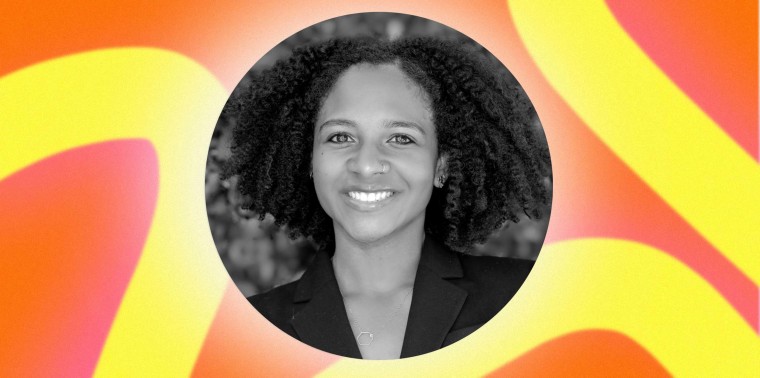In honor of Pride Month, NBC Out is highlighting and celebrating a new generation of LGBTQ trailblazers, creators and newsmakers. Visit our full #Pride30 list here.
The discrimination that Black and LGBTQ people have faced in the health care system is what inspired medical student Mikiko Thelwell to find her calling.
“It wasn’t until after I recognized a lot of the harm that medicine, specifically in the field of psychiatry, has perpetuated towards marginalized people … that I recognized that there’s this large space for advocacy,” Thelwell, a first-generation Jamaican American from Atlanta, told NBC News.
Thelwell, 28, is a medical student at UCLA’s David Geffen School of Medicine and the historically Black Charles R. Drew University of Medicine and Science. She is also a Point Flagship scholar and Anchor Trust scholar at the Point Foundation, a national scholarship-granting organization for LGBTQ students.
Since 2017, Thelwell has also worked for UCLA’s Commercial Sexual Exploitation (CSE) Research Group, which aims to reduce disparities and increase access to services for youth affected by sexual exploitation. The program is led by Thelwell’s mentor, the psychiatrist Dr. Eraka Bath, whose footsteps Thelwell says she hopes to follow in.
“It can feel like medicine is in this ivory tower, where we’re this arbitrator of health or wellness, when in reality, there’s so many sources of healing and wellness,” she said. “I really appreciate that she used so much of her power and her financial and educational resources to build these partnerships.”
As one of the only Black LGBTQ students in her medical program, Thelwell said she sees an opportunity to create change in the field.
“I really didn’t see myself in the medical field at all,” she recalled. “It can be very, very isolating for me socially, but then when I look at the work that I’m doing … I’m sure it’s even more salient now.”
Last year, a study by the Pew Research Center found that Black people make up 11 percent of the workforce but only 9 percent of jobs in science, technology, engineering and math (STEM).
Thelwell said her intersectional — and underrepresented — identities have already been an asset in her field. She recalled being able to provide support in a hospital to a queer woman fleeing an abusive partner.
“I felt like I was in much more of a position to be able to see her and understand her,” Thelwell said.
When asked about the significance of Pride Month, observed in June, Thelwell said Pride is significant because it remains a space where queer people can exist freely and feel liberated to be themselves.
“Pride means that you are holding your integrity, you’re able to identify strongly with your values and your goals and say them out loud in full confidence,” she said. “You’re in line with yourself and with your community.”
Thelwell’s advice for other LGBTQ Black people entering the field of medicine is to prioritize efforts that can inspire change in the community.
“We should all be pursuing what I like to call ‘revolutionary medicine,’” she said. “We should be using our skills and our knowledge to benefit the people. It is always 100 percent about your people, and if you’re not doing medicine towards that, then why are you doing it?”

